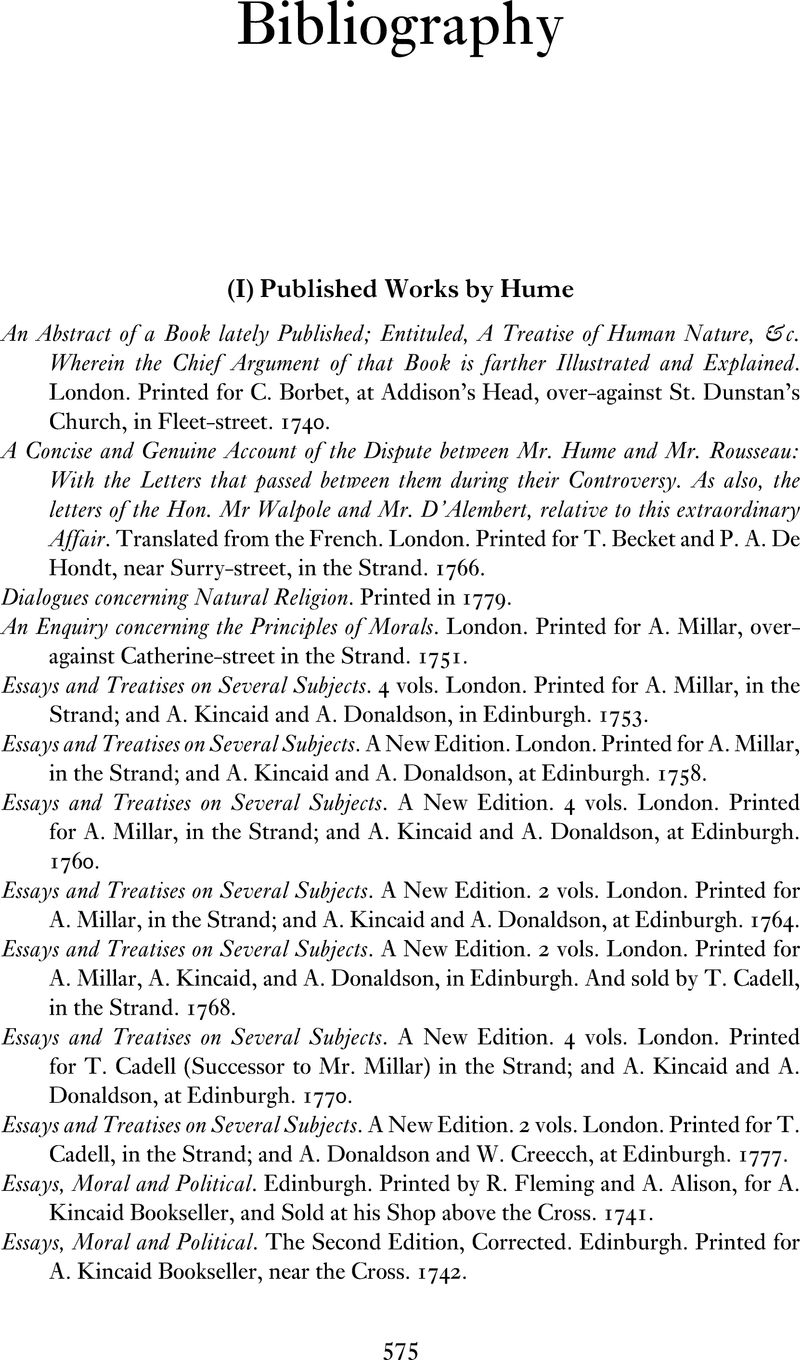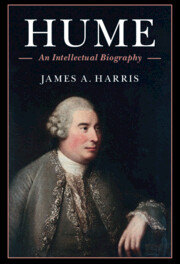Book contents
- Hume
- Hume
- Copyright page
- Contents
- Preface
- Textual Note
- Introduction
- 1 Pursuits of Philosophy and General Learning
- 2 Anatomist of Human Nature
- 3 Essayist
- 4 The Achievement of Independence
- 5 Two Years at Ninewells
- 6 The Start of a History of Great Britain
- 7 The Completion of a History of England
- 8 Paris, London, Edinburgh
- Afterword: Death and Character
- Notes
- Bibliography
- Index
- References
Bibliography
Published online by Cambridge University Press: 05 October 2015
- Hume
- Hume
- Copyright page
- Contents
- Preface
- Textual Note
- Introduction
- 1 Pursuits of Philosophy and General Learning
- 2 Anatomist of Human Nature
- 3 Essayist
- 4 The Achievement of Independence
- 5 Two Years at Ninewells
- 6 The Start of a History of Great Britain
- 7 The Completion of a History of England
- 8 Paris, London, Edinburgh
- Afterword: Death and Character
- Notes
- Bibliography
- Index
- References
Summary

- Type
- Chapter
- Information
- HumeAn Intellectual Biography, pp. 575 - 610Publisher: Cambridge University PressPrint publication year: 2015



